Justin Bieber Has Ramsay Hunt Syndrome... What Does That Mean?
By Kristin Myers on June 13, 2022 at 9:30 AM EDT
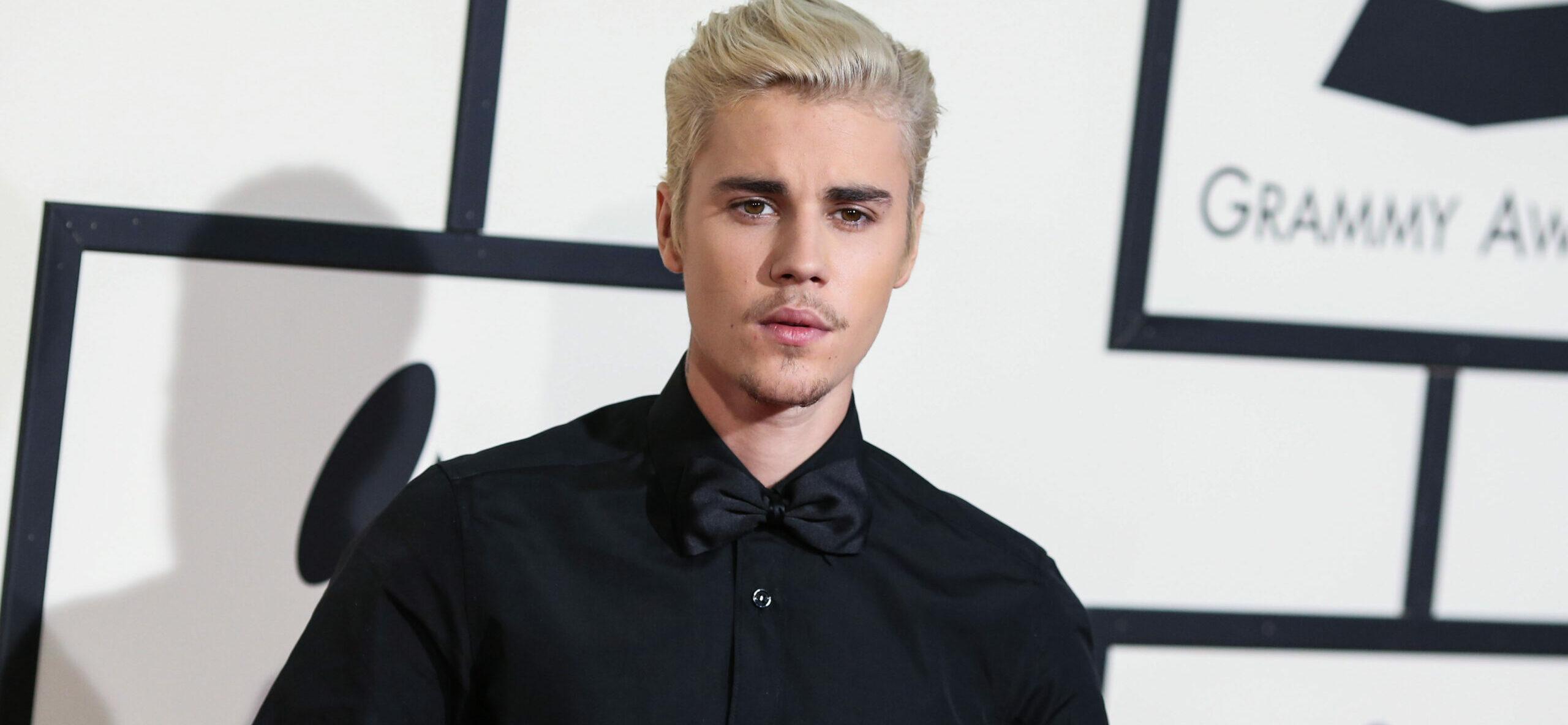
Singer Justin Bieber revealed that he has Ramsay Hunt Syndrome.
On Friday afternoon, the “Peaches” singer posted a video to his Instagram page to explain that he went to the doctor due to facial paralysis. While he was there, he was diagnosed with Ramsay Hunt Syndrome.
What Justin Bieber Had To Say About His Facial Paralysis
View this post on Instagram
As the “Baby” singer explained in the video above, his facial paralysis is caused by a virus that attacked a nerve on the inside of his ear. It forced Justin to cancel several shows over the past week due to the syndrome, which he described as “pretty serious.”
It’s not clear how long it is going to take to get better, but he showed his fans that he can only able to blink with one of his eyes. “I can’t smile on this side of my face… this nostril will not move,” he said.
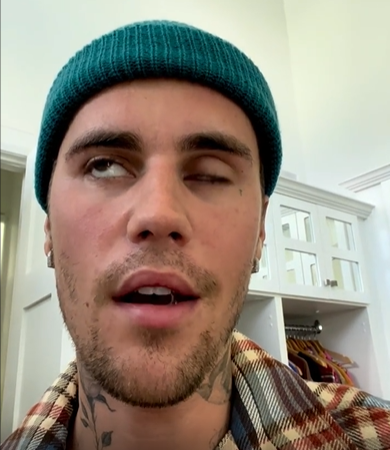
Justin explained that he made the video for the “frustrated” fans who are upset he canceled his shows to show that he is “physically not capable” of performing right now.
“I wish this wasn’t the case but obviously my body’s telling me I gotta slow down and I hope you guys understand and I’ll be using this time to just rest and relax and get back to one-hundred percent so I can get back to do what I was born to do,” he told his fans. “But, in the meantime, this ain’t it.”

Justin said “I’m going to get better,” adding that he’s been doing a ton of facial exercises to “get my face back to normal.” He said it will get better. Doctors aren’t sure how long it will be, but he said, “it’s going to be okay. I trust God and I trust that it’s all for a reason. I’m not sure what that is right now, but in the meantime, I’m going to rest and I love you guys. Peace.”
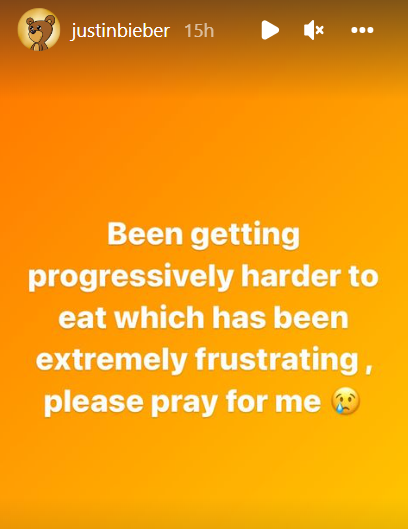
His wife, model Hailey Bieber, showed him support by reposting his video on her Instagram Stories with the caption, "I love u baby." Justin also posted an update to his Instagram Stories, explaining, "Been getting progressively harder to eat which has been extremely frustrating, please pray for me."
It sounds like things are becoming more and more serious by the minute.
What Is Ramsay Hunt Syndrome And Can It Be Cured?
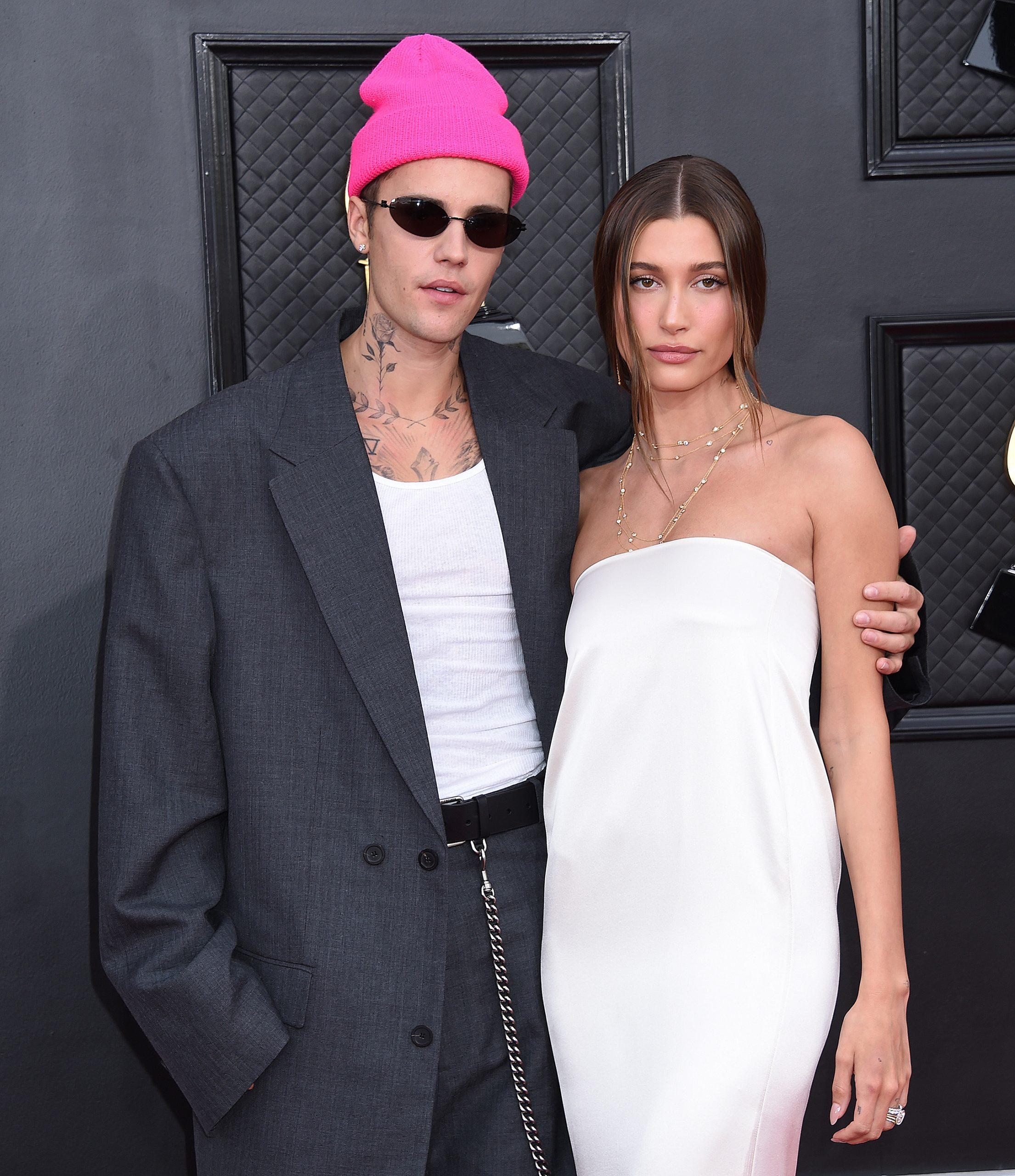
After Justin announced his diagnosis, PEOPLE sat down with Dr. Amit Kochhar, MD. Kochhar is a board-certified otolaryngologist (ENT) and director of the Facial Nerve Disorders Program at Pacific Neuroscience Institute at Providence Saint John's Health Center in Santa Monica, California.
Kochhar told the publication that it is a “very, very rare disorder,” but the second most common cause of atraumatic peripheral facial paralysis after Bell’s Palsy. Kochhar said that it only occurs in around five in 100,000 people.
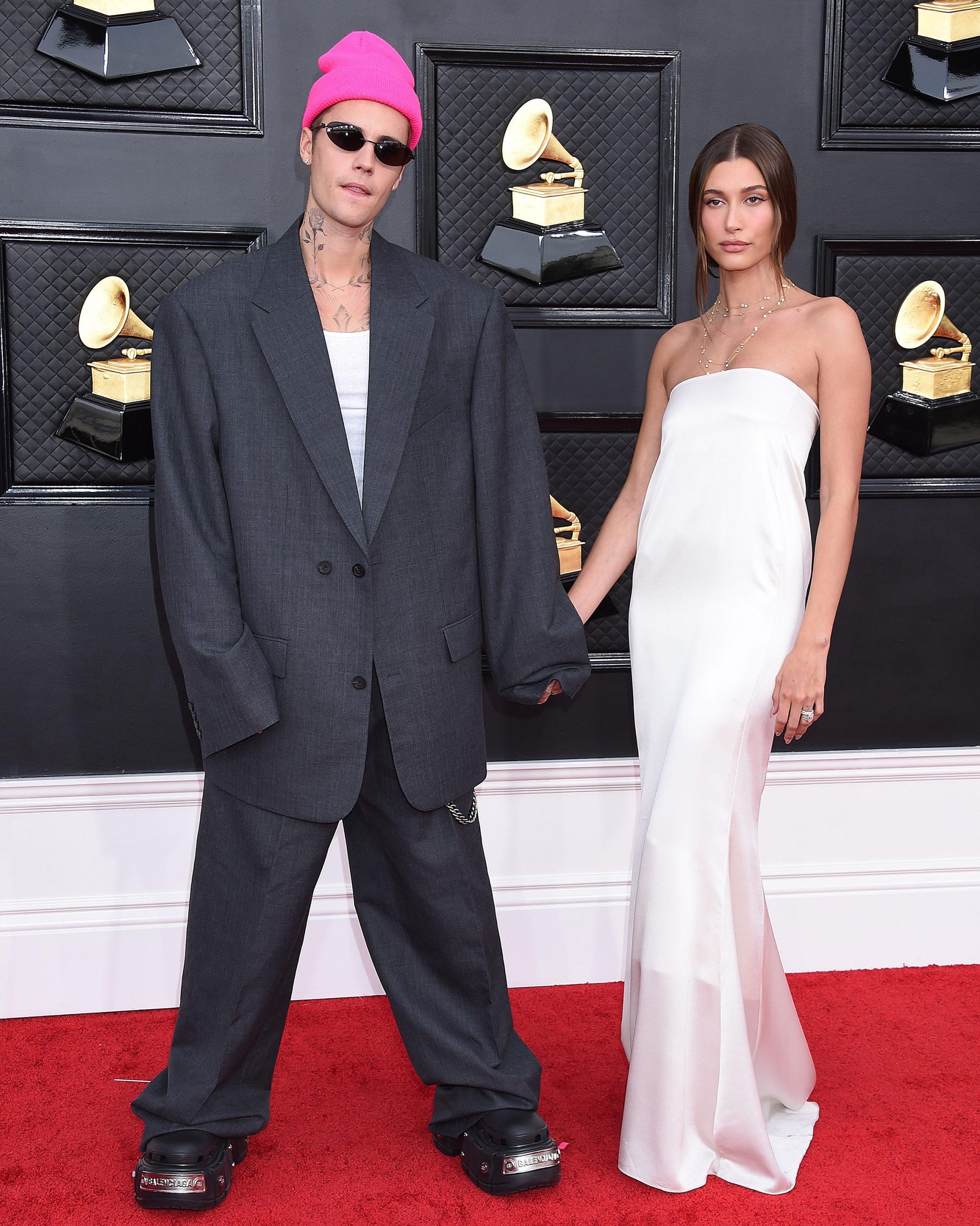
The syndrome is caused by a shingles virus reactivation in the face, which means that children who’ve had chicken pox of the varicella-zoster virus as a child are susceptible to contracting this.
The syndrome is often caused “by times of high stress or immunosuppression, as well as by immunosuppressant drugs or other underlying conditions.” As Kocchar explained, a person’s body is not able to fight off the infection.
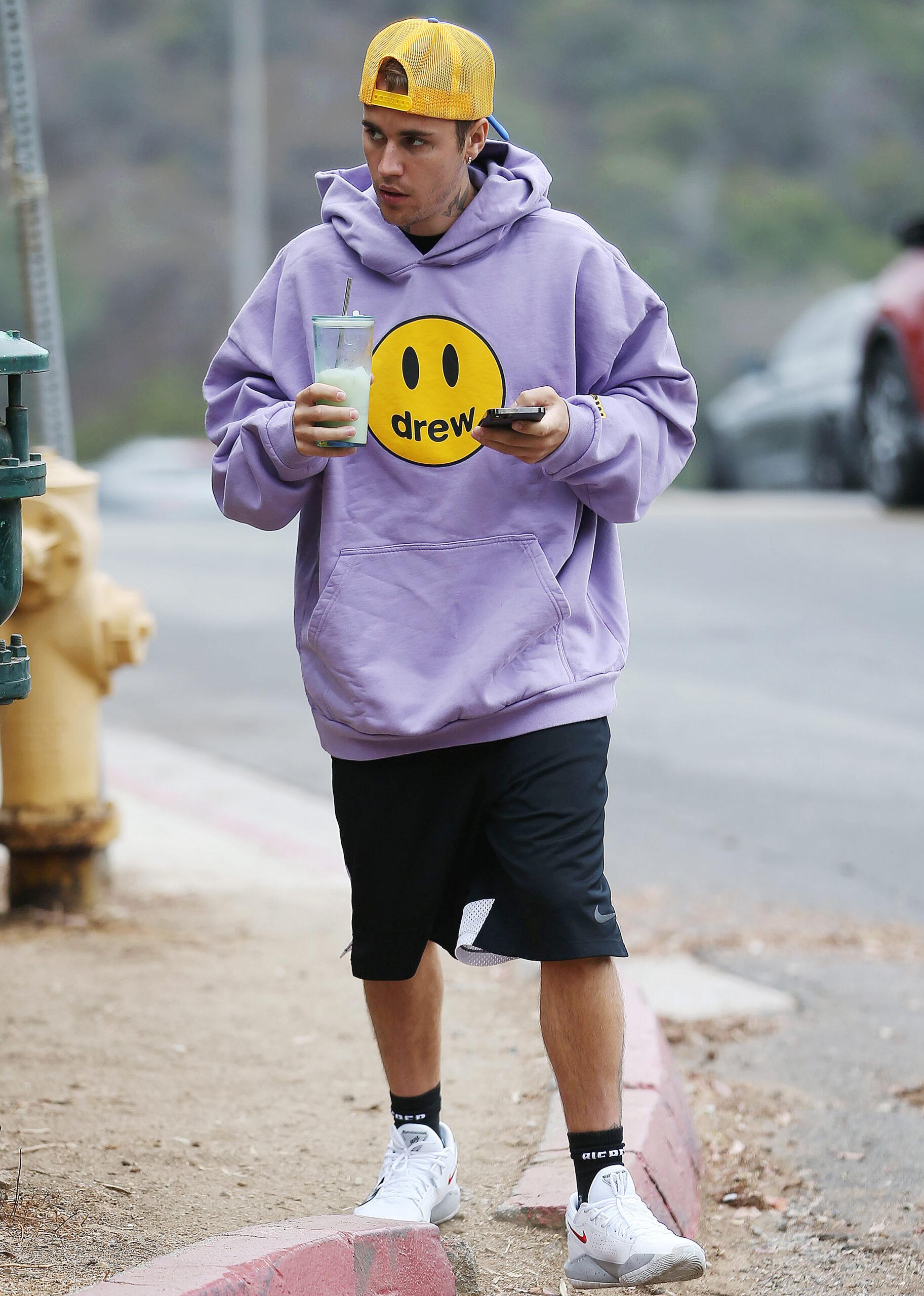
The virus that causes chickenpox stays dormant in the body until something, like stress, triggers it. At that point, it returns in the form of herpes zoster (Ramsay Hunt), which can inflame not only nerves in the face but the abdomen and back as well.
As Justin explained in the video, his facial paralysis is caused by inflammation, meaning that the nerve expands but the bone doesn’t move. Kocchar explained that “essentially, it crushes the nerve.” Other side effects are reported to include hearing loss, severe vertigo, rashes, blisters, headache, and vomiting.

Fortunately, it can be treated with high-dose steroids and antivirals at home. Only in rare cases are patients hospitalized and treated through an IV.
Although some patients have tried electrical stimulation to get their facial muscles to move, Kochhar warned that it is “very discouraged” by medical experts, as it can “cause very severe side effects and impair the recovery.”
“It’s really just a matter of letting your face recover,” he added.
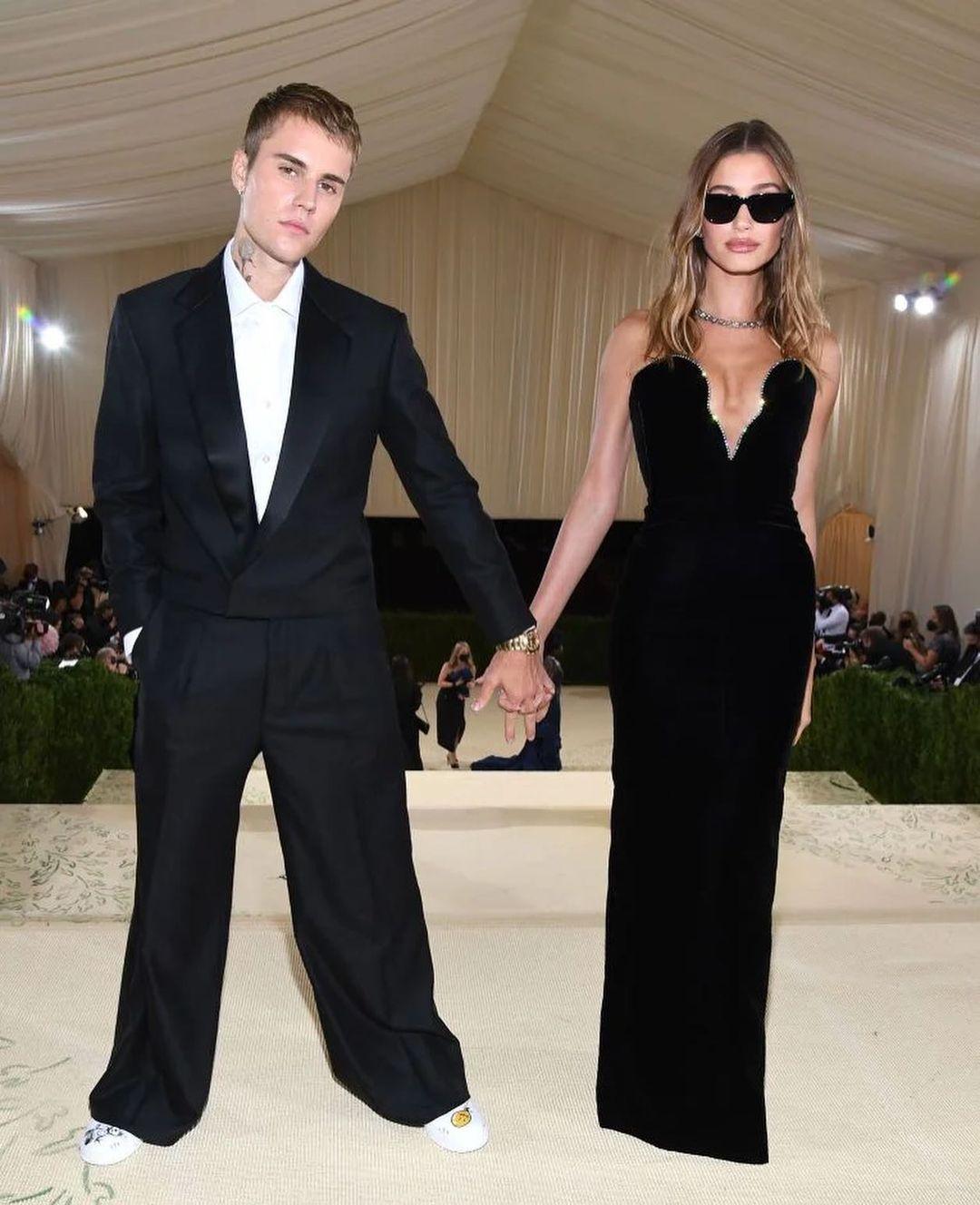
In terms of long-term effects, Kocchar said that about 75% of people will make a complete recovery. On the other hand, 25% of people may “develop some typo of long-term nerve damage,” Kochhar warned.
He said these long-term effects can include unwanted facial spasms, tightness or discomfort, and in “the most severe cases,” facial asymmetry. He said that these side effects are more likely to occur in those who take longer than a month to recover.

“There's no way to know who's going to develop long-term issues,” Dr. Kocchar said, adding, “If they recover within the first three to four weeks, usually they'll have a pretty good chance of a clean recovery.”
The good news is that Justin Bieber has a great medical team behind him and the support of his fans who are all wishing him well and offering their thoughts and prayers. Hopefully, he will be back on stage in no time!